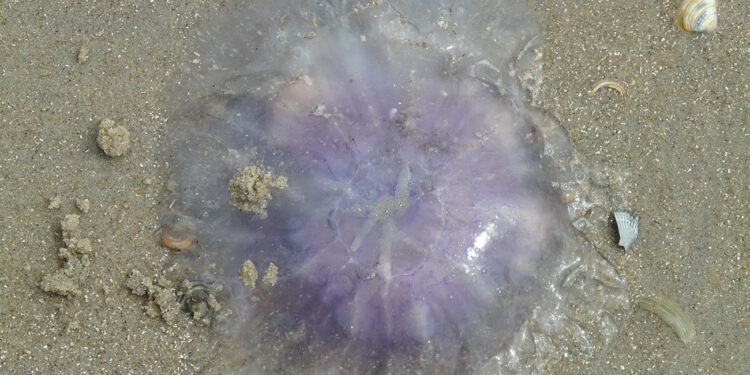Since the beginning of the summer of 2025, alerts have multiplied throughout the Mediterranean coast: jellyfish, in particular the Noctiluca Pelagia, also known as the Mauve jellyfish, proliferate massively. From the beaches of the Côte d’Azur to those of Turkey, passing by the Balearic or Greece, the reports are multiplying. And Tunisia is not spared.
On Tunisian social networks and in certain coastal areas such as Hammamet, Kelibia or Mahdiaseveral bathers have reported the visible, sometimes abundant presence of jellyfish in June. “We had never seen so many jellyfish at this time of the year,” said a regular at Gammarth beach. A perceived presence as earlywhich feeds concerns, especially for the safety of children and tourists.
A expanding phenomenon in the Mediterranean
According to the observation network Meduseo,, specialized in real -time monitoring of these marine creatures, The arrival of jellyfish in the Western Mediterranean was earlier and denser than previous years. In the eastern Mediterranean, the situation is even more worrying: the invasive jellyfish Rhopilema Nomadicaoriginally from the Red Sea, was observed in February 2025 on the Turkish and Israeli coasts, sometimes causing the closure of beaches.
This proliferation of jellyfish is no coincidence. Specialists evoke Several converging factors ::
- Water warmingfavored by climate change, creates an ideal environment for the reproduction of jellyfish.
- Overfishing Reduces the number of their natural predators, such as tuna or turtles.
- Pollutionin particular waters rich in nutrients (fertilizers, domestic rejections) stimulates the growth of the plankton which the jellyfish feed.
In other words, Human activity plays a central role in this ecological imbalance.
What consequences for Tunisia?
Besides the risk of painful bitesthe massive presence of jellyfish can impact Basy tourismalready weakened by other factors, and lay Artisanal fishing problemswhen the nets are crowded with jellyfish. If the episodes remain moderate for the moment in Tunisia, scientists call to better monitor the situation and to raise awareness among citizens.








